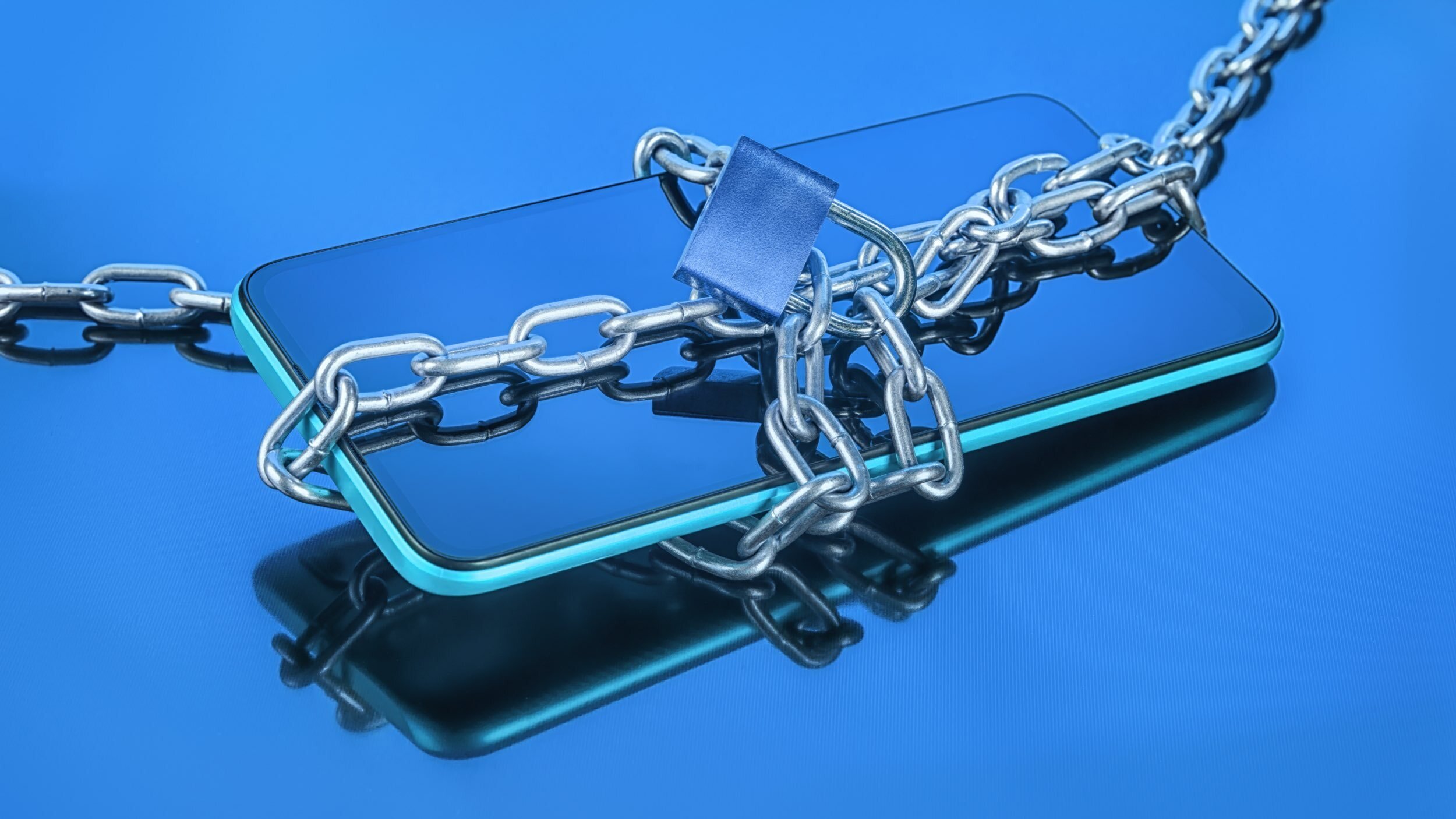“Taking away peoples freedom is whats best for users! It’s the American way!”
The FCC is the one taking away people’s freedom here, by preventing users from entering the kind of contract that T-Mobile and AT&T are offering.
Consenting adults are happy to sign up on those terms, and the FCC is proposing to prevent that arrangement.
The carriers make an excellent point that without that lock-in, the sale of the phone is less valuable to them. This means they won’t be able to offer the heavy subsidies on phones any longer.
This is the government preventing contracts between consenting adults. The government is reducing freedom here.
So the story is ‘if they have to be unlocked, we can’t offer discounts on the phones’.
Okay fine but uh, the last time I used a post-paid subsidized phone, I signed a contract. That stipulated how much I’d pay for however many months, and what the early cancellation fee was, as well as what the required buy-out for the phone was if I left early.
In what way is that insufficient to ensure that a customer spends the money to justify the subsidy?
It’s just a lie. I don’t think it’s meant to hold up to scrutiny, it’s just meant to be repeated.
What are you saying is a lie? What claim exactly?
That’s exactly right. Users will have to purchase phones on credit like we do for every other major (and sometimes minor) purchase. This doesn’t change the relationship between carriers and their customers at all. It only changes their accounting.
Accounting is a relationship. When the government prevents a specific type of relationship — one consenting adults are regularly choosing to enter — the result is a change in relationships.
Bonus points: In Germany all phones come unlocked, regardless if you get them with a contract or not, and we still get much better discounts on the phones than in America.
Often times the total cost of the 24 month contract ends up being cheaper than buying the phone without a contract, so you essentially end up with a free phone plan
So, what does it take to emigrate to Germany? Asking for a friend…
If you are from the US it will be pretty easy to get German citizenship, but you absolutely have to learn German to live here, since most older people here don’t speak English
Money and lawyers
Nono that wasn’t a service contract, it was a payment plan on the phone. And you can’t cancel the service until you pay off the phone.
It’s different…. Really….
Yes you signed a contract. That contract has a certain value to it, and that value offsets the cost to them of the phone.
On your side, the fact that this contract came with a subsidized phone made it worth it to you.
What the carriers are saying is that this set of interrelated contracts won’t be available, and so these terms won’t be worthwhile to the parties involved, leading to a change in future contracts. Namely, the service contracts will have to be more expensive to them, which will make them less valuable to you, which will make them less likely to happen.
This is not me defending any telecom, but locking subsidized phones during the contract period, is one of the only reasonably legitimate use cases for carrier locking.
And the reason is simple, fraud. Carrier locked phones that have been reported for fraud/nonpayment, can’t be used off network. It doesn’t help recover the cost for the carrier, but it does deter that type of fraud.
Whereas unlocked phones can just be taken to another network, which means they’re resale value is worth the effort to steal in the first place.
Now, all that is true, but that doesn’t mean I’m in favor of it, or that telecoms have ever made unlocking fully paid phones easy, they haven’t, so fuck them.
And before anyone points it out, yes, I’m aware locked phones still have have value for fraud, but that fraud typically has a higher threshold for entry, as it involves having the contacts who can leverage overseas black markets.
Not even unlocked phones can be used on another (us) carrier if reported stolen, all IMEIs associated with the device are blacklisted across all legal carriers in the country.
No, they are not. Blacklists are per carrier, at least when dealing with American primary carriers, and not MVNOs.
No, it’s nationwide, all carriers and mvnos are signed on to the US Block Status since IMEI became standard. It’s a separate list from the global GSMA and not all carriers in the US report to the GSMA like they should,but if a device is reported lost or stolen in the US it cannot be activated by a US carrier until resolved.
Except I have used unlocked IMEI blacklisted devices on different carriers, so if one exists in theory, it doesn’t appear to be there in practice.
Depending on what state you’re in, you admitted to fraud or possession of stolen goods, so maybe don’t admit that. That aside yeah some carriers can fail to submit to the US Block Status but generally those instances are rare given the activating carrier can be legally liable.
I’m not admitting to any crime. There are other ways to come into possession of blacklisted IMEI devices, and other ways for them to become blacklisted that don’t involve either of those scenarios.
Why don’t you go pull up all those FCC fines leveied on carriers for activating blacklisted phones.
“Narcissistic domestic abuser claims the exit doors that are locked from both sides are just for the protection of their spouse and its in their best interest to be secure”
For my past 3 phones I just bought straight from the manufacturer.
I recommend it and hope phone unlocking gets pushed through despite their whining
I’ve done this almost from the very beginning (back in the 90s) and always had very small mobile communications costs because I could easilly change providers and plans and even do things like use a local SIM card whilst abroad to avoid roaming costs.
I haven’t financed a phone since 2008. I copped a fee for ending a 24 month contract a day early.
I just buy a cheap outright handset, flash a community ROM and avoid everything my telco offers past a $20 basic service. Handsets with community support go for years past what the manufacturers support.
Is there a technical term for when a company or corporation makes a statement that is a blatant bad faith argument like that?
If none exists, I’d call it “Corporate massturbation”. Because they’re trying to jerk everyone off.
Edit Here’s another one: “Corporate Anal Ostriching.” Because they’re shoving their heads up their own asses
Gaslighting?
Not even close.
It’s always the same argument. “This objectively bad thing for consumers is actually good for consumers because it allows us to offer a lower price!”
No, dipshits, you are choosing to make your product shittier than necessary and charging customers to undo your shittery. That’s not some external thing, it’s something that you chose.
Propaganda
Locked phones should just be straight up illegal. It creates so much e-waste and is utterly ridiculous
Locked phones are what led me into the rabbit hole of purchasing phones from manufacturer, since the carriers not only lock phones but hobble the OS.
It did mean understanding what was necessary for a phone to qualify for given carriers, but I can tech when I need to, and I tech for my friends when they need it.
In 2024, T Mobile and AT&T (and Verizon) have all demonstrated they do not engage in good faith commerce, and so right now they’re being sniveling little shits (quote me please) because the FCC and DoC are escaping regulatory capture.
That is to say, the end users are tired of their shit. Apple and Google, too.
My T-Mobile phone that’s been unlocked and moved over to Google Fi has the T-Mobile image whenever you start up the phone. I’ll only buy phones directly from the manufacturer now.
You’d have to flash new firmware for that to change. In the old days each phone was carrier specific and had to have the exact right firmware but now they’re fairly generic and are cross compatible (do your own research). You could check XDA Developers for the process.
Thats basically just an image file you can replace. If the phone is rooted, there are tools to switch the image to whatever you want.
And if it’s not rooted, you said it was unlocked; Feel free to root it.
Good to know thanks
“Rabbit hole”? Isn’t it as easy as just not going to a carrier’s store for it?
We always bought from generic tech stores, almost always big chain ones - never got a carrier-locked device. Is it different in the US?
A lot of the big tech stores here in the US have separate counters for each of the major mobile carriers, and sell devices that are locked into those contracts. You can sometimes get unlocked phones from big tech stores, but most of what they carry is locked to a carrier.
If you get phones from the manufacturer they’re not labeled compatible with AT&T so much as that they have access to specific radio ranges and are controlled either by soft-stored codes or by a SIM card, and I’d buy the sim card from the service, and then stick it in my phone. The Sony I had for a while was compatible with both the T-Mobile and AT&T ranges, and I used a third party service that was an el-cheapo front for T-Mobile.
T-Mobile wanted me to pay extra for hot-spot use, but I got around that with software, which is like hacking the subscription seat warmers on your BMW.
Curiously, Apple phones will lock themselves (or did for a while… is it better now?) based on what service you initially connected them to, and you have to (had to, I hope) get their permission and pay fees to unlock it again.
The telecommunication companies are an oligopoly, so like a legal cartel, so they pull a lot of bullshit that we end users have to suffer. But it means I feel not a jot of guilt when I hack the hell out of it to extract services I didn’t pay for, since it’s all a grift anyway.
Question: I bought my phone unlocked several years ago. I have AT&T. But apparently, because I didn’t buy it from AT&T, my visual voicemail refuses to work
I’ve tried and given up several times to fix it, and it’s not a huge deal; I just miss being able to check my voicemail without calling it.
Do you happen to know anything about this? Every “fix” I’ve found has failed so far
Sadly, I don’t know enough about it to give you advice. Every time I switched phones or services, I had to twaddle with the settings until I could get features (commonly MMS, or SMS with media) so that they worked properly. If AT&T is actually blocking you out for refusing to use an AT&T phone, the trick would be to get the phone to pretend it’s an AT&T phone, then way Firefox can pretend it’s Chrome when it needs to.
But I don’t know the specifics.
What exactly is “good faith commerce”?
That doesn’t seem to register as a coherent concept, considering good faith has to do with considering the whole of the interaction instead of one’s own side, and business is when each person handles only their own side of the equation.
Seems like an empty phrase to me, unless you can enlighten me.
Never buy a phone from your carrier, they will do some evil shit to try and force you to stay
It was probably incompetence more than malice but T-Mobile customer service incorrectly told me multiple times that I was not allowed to pay off my phone balance early to unlock it. I’m on US Mobile now and I’ll never go back to postpaid.
With Deutsche Telekom, never attribute to incompetence that which can be attributed to greed.
Missing in this thread, courts are not known for their technological literacy. So companies just lie to them. Like, all the time. This isn’t meant to withstand consumer scrutiny.
isnt lying to court felony?
For poor people, maybe
This.
Yeah but you have to get caught lying. And the courts aren’t very literate with tech and economic stuff. You’d basically need to create a memo that says, “lol we lied!”
someone should try to inform relevant courts about technical things, no idea how but those corporations shouldnt be allowed to get away with crime
You’d be interested in groups like the EFF and Amicus briefs.
deleted by creator
Are you suggesting that there are some lies involved in this? If so, you shouid be specific about which lies you’re referring to. Without the specifics this just seems like FUD.
The idea that locking phones is good for customers is a great example.
Near monopolies say monopolistic behavior is good for you and does not only benefit them. More bullshit at 11.
You know what the difference between a near monopoly and an actual monopoly is?
In one scenario there’s competition and in the other one there’s not. Basically one’s a monopoly and the other isn’t.
If near monopolies agree to rules sets with one another, they can effectively monopolize. That’s why there are regulations in place to prevent that behavior but we’re consistently seeing the lack of enforcement of those rules. Sure there are still other telecoms other than these two, but in the US each of the major telecoms are guilty of this sort of behavior, and while phone unlock is allowed they create unnecessary barriers to make it more difficult for consumers to do this, at the benefit of themselves. It’s similar malicious compliance to providing an ability to cancel a subscription but making it difficult to do so for consumers so they give up trying.
Ohh look a corpo has opinions about your property 🤡
Remember that nextime you pay for a subscription
“You mean our property.”
-Corpo
What year is it? Locked devices have been illegal in Quebec for, like, ever.
If they are good, why then the Europe ended that practice nearly 2 decades ago?
and behold all of the terrible consequences!
They must hate freedom!!
If I don’t own my phone, then I’m not paying for it. Period.
Exactly. No further discussion whatsoever.
War is peace.
Freedom is slavery.
Ignorance is strength
Poverty is wealth
France is bacon
Damnit! I was trying to find bliss!


















